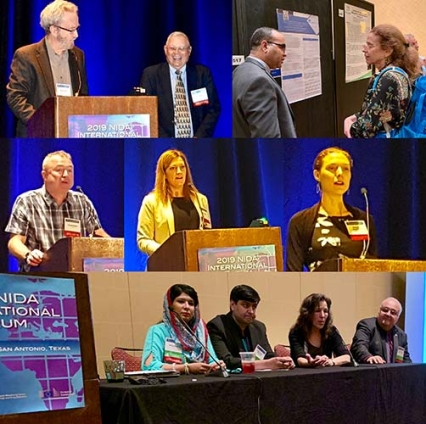The 24th NIDA International Forum was held June 14–17, 2019 in San Antonio, Texas. The European Monitoring Centre for Drugs and Drug Addiction (EMCDDA) and the European Commission EU 4 Monitoring Drugs (EU4MD) project cosponsored the meeting. The satellite to the College on Problems of Drug Dependence (CPDD) annual scientific meeting attracted 184 participants from 43 countries. NIDA International Program Director Steve Gust chaired the meeting and presented outgoing CPDD International Committee Chair Clyde McCoy, University of Miami, with a certificate in honor of his outstanding efforts to support international collaboration throughout his career. Dr. McCoy described early initiatives by CPDD and NIDA to expand international collaboration on drug abuse and drug-related HIV research, noting that participants in the NIDA International Forum add new voices to the discussion every year. EMCDDA Scientific Director Paul Griffiths described the EU4MD project to build capacity and understand the impact of drug trends in neighboring countries on European health and security. He stressed the importance of understanding commonalities in drug use and the need to build partnerships among countries to promote drug research and establish common models for monitoring, training, and development. He said EMCDDA views the NIDA International Forum as particularly relevant to capacity building and an outstanding opportunity to network with drug abuse researchers around the globe. Nearly 100 researchers from 38 countries presented their research posters at a joint NIDA International Forum/CPDD Workshop on June 17. Speakers in the opening plenary session included reports from NIDA Division of Extramural Research Director Susan Weiss on the ABCD longitudinal study to track brain development in children from age 9 or 10 through early adulthood; Marya Hynes, Inter-American Drug Abuse Commission, on drug use trends in the Americas, and Mona Johnson, Society for Research on Nicotine and Tobacco on online training and resources in tobacco and nicotine research. Other sessions focused on potential U.S.–Canada collaboration on cannabis research, evidence-based drug demand reduction education programs, UN Family Therapy training materials, social determinants of addiction, and publishing addiction research.

